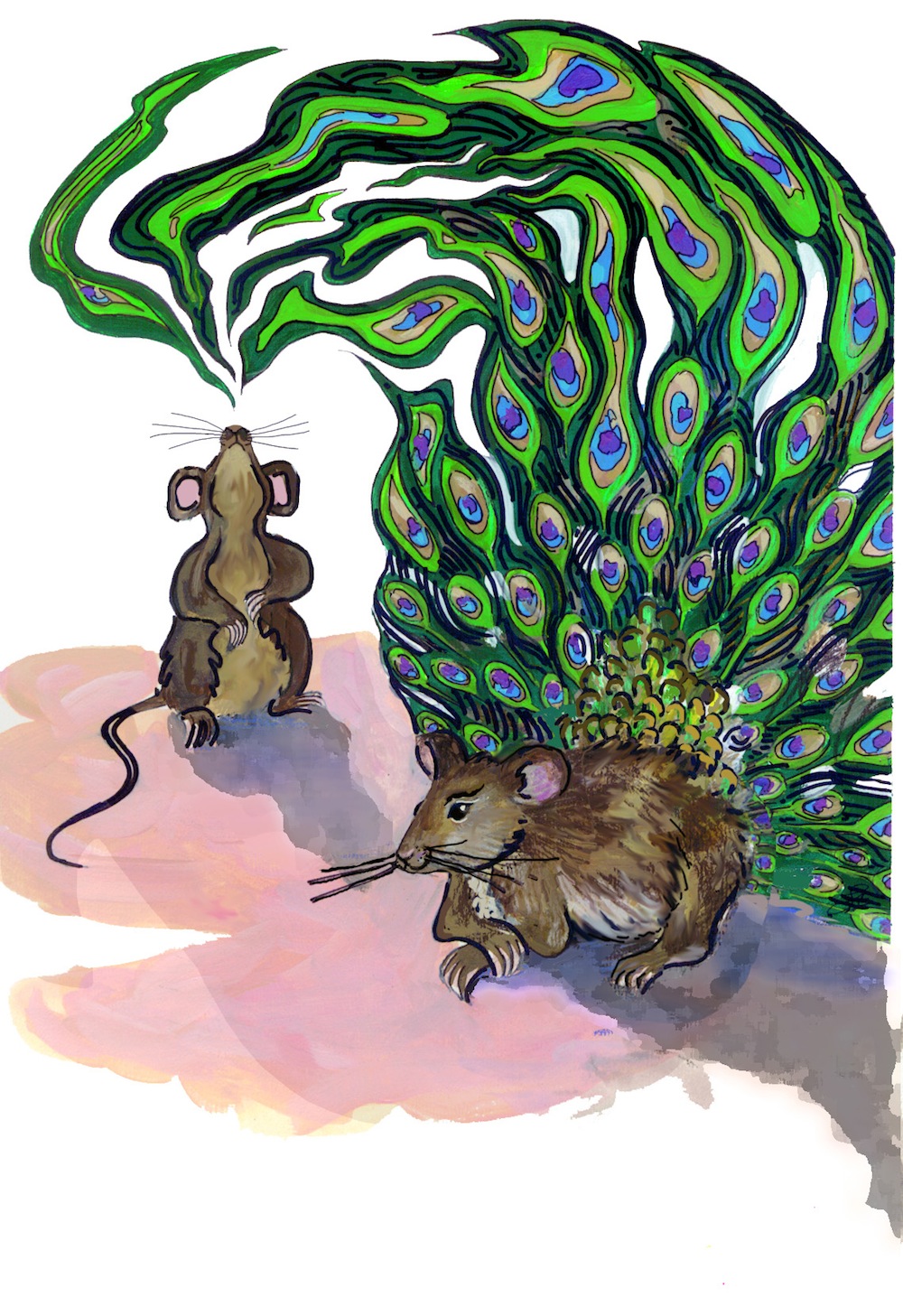Stinky Seduction: Promiscuous Female Mice Have Sexier Sons

In environments where mice compete for mates, the rule seems to be survival of the sexiest.
Researchers have found that when female mice must compete with one another for mates, they bear sons that produce more urinary pheromones, seductive scents that attract mates and help ensure the mice's genes get passed on. The findings point to a more natural way to breed endangered species in captivity, researchers say.
"If your sons are particularly sexy, and mate more than they would otherwise, it's helping get your genes more efficiently into the next generation," study leader Wayne Potts, a biologist at the University of Utah in Salt Lake City, said in a statement. [Top 10 Aphrodisiacs]
Scientists have only recently begun to understand how environmental conditions to which parents are exposed affect the traits of their offspring — a process known as epigenetics.
"This study is one of the first to show this kind of epigenetic process working in a way that increases the mating success of sons," Potts said.
Of mice and monogamy
Scientists usually breed mice monogamously, by housing them with only one mate. But in nature, mice must compete for mates within a population.
Sign up for the Live Science daily newsletter now
Get the world’s most fascinating discoveries delivered straight to your inbox.
To study mice under more natural conditions, Potts and his colleagues raised the rodents in "mouse barns," seminatural enclosures divided into fenced sections among which the mice could travel easily. Mice that lived in these barns were considered promiscuous (whether or not they actually mated with many partners). The researchers raised a second group of mice in traditional cages with only a single mate, making them monogamous.
In the experiment, researchers bred mice in four combinations: promiscuous mother and promiscuous father, monogamous mother and monogamous father, promiscuous mother and monogamous father, and promiscuous father and monogamous mother.
Sons of promiscuous mothers produced levels of urinary pheromones that were 31 percent higher than those of sons born to monogamous moms, regardless of whether the father was raised in promiscuous or monogamous conditions. The findings, detailed online today (Nov. 18) in the journal Proceedings of the National Academy of Sciences, suggest that promiscuous mothers prepare their sons for a similar environment by increasing the chances the sons will attract a mate and pass on the family genes.
However, sons of promiscuous fathers produced 5 percent less pheromones than sons of monogamous fathers. Promiscuous fathers will have to compete with their sons for mates, so it wouldn't benefit them if their sons were to produce lots of pheromones. As Potts put it, "If you're worried about your sons impinging on your own reproductive success, then why make them sexy?" Even though the sons would pass on some their father's genetic material to future generations, the fathers could pass on more directly.
Stinky seduction
Pheromones, the "cologne" of the animal world, are proteins, and like all proteins, are encoded by DNA. But the environment can cause epigenetic changes to the DNA. For example, a common chemical modification called methylation reduces the expression of a protein.
In the study, Potts' team found that the pheromone gene Mup11 was methylated twice as much in sons of monogamous mouse moms than in promiscuous mice, explaining why the sons of promiscuous moms produced more of the sexy scent.
Captive-breeding programs could glean insight from scientists' understanding of how social environment influences the mating success of offspring. Domestication stimulates epigenetic mechanisms that make animals less fit to survive when reintroduced to the wild, Potts said, and introducing more mating competition could improve the animals' survival.
But producing pheromones comes at a cost: Male mice that make more pheromones have shorter lives, the researchers found in a previous study. Just 48 percent of males from promiscuous parents lived to the end of the experiment, whereas 80 percent of males from monogamous parents did. Pheromones require a lot of energy to produce, and a mouse that's making those chemicals invests as much energy as 10 male peacocks do to produce the colorful tails they use to attract mates.
As for humans, scientists haven't yet studied how social environments affect pheromone production, Potts said.
Follow Tanya Lewis on Twitter and Google+. Follow us @livescience, Facebook & Google+. Original article on LiveScience.










